The magnificent sperm whale, the inspiration behind Herman Melville’s ‘Moby Dick’, has recently been brought back into the forefront of the mind of cinema goers around the world with director Ron Howard’s latest offering ‘In the Heart of the Sea’. This tale documents the Moby Dick authors’ quest for truth about the supposed sinking of whaling ships by the whales themselves, which led to his much loved, seminal novel.
Sperm whales have once more been propelled into the thoughts of animal lovers around north-west Europe in recent days as reports of strandings along the east coast of England occurred over the weekend.
The first report came from Sea Watch’s Norfolk Regional Coordinator, Carl Chapman who runs the Norfolk Cetaceans blog, with the local coastguard reporting 5-6 sperm whales close inshore at Hunstanton in Norfolk on Friday (22nd January). Three animals then stranded, one of which died overnight whilst two managed to swim back out to sea.
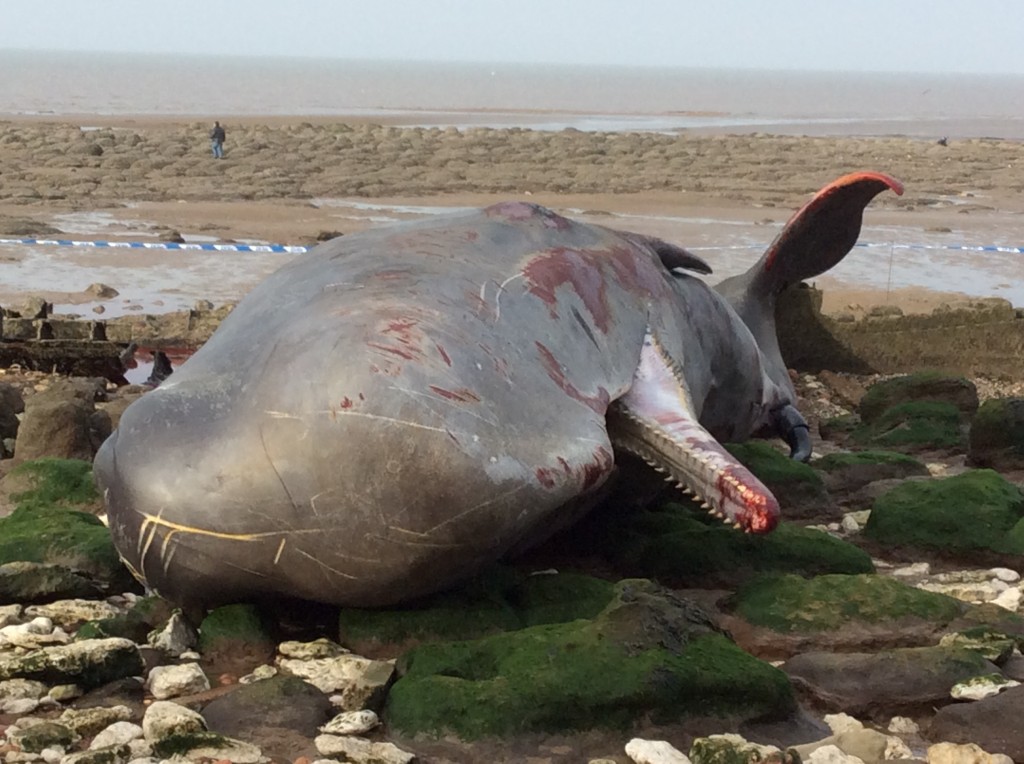 Dead sperm whale on the beach at Hunstanton on Saturday 23rd January 2016 . Photo by Sea Watch observer Laurence Clark/ Castle Vision Photographic
Dead sperm whale on the beach at Hunstanton on Saturday 23rd January 2016 . Photo by Sea Watch observer Laurence Clark/ Castle Vision Photographic
Footage of the sperm whales, just off the Norfolk coast, can be seen here.
Early Saturday evening of 23rd, further reports came in from further up the coast at Skegness in Lincolnshire, where two more sperm whales were found dead on the beach. A third stranded sperm whale was discovered just south of the resort town at Lagoon Walk, with the other two slightly further south, closer to Gibraltar Point National Nature Reserve.
These tragic events follow a spate of sperm whale strandings in The Netherlands and Germany in recent weeks; five sperm whales live-stranded on Tuesday 12th January on the Dutch island of Texel in the Wadden Sea, and died overnight, a sixth carcass was washed ashore on the island two days later. Earlier, on 8th January, two very fresh sperm whales were found on the island of Wangerooge, Germany, and must have live-stranded and then died. Two animals were found floating off nearby Helgoland on 12th January; a further one was found dead, stranded in the mouth of the Weser, whilst another stranded near Büsum, making six deaths in German waters and six in Dutch waters, along with the four so far in eastern England.
The 50ft whale on the beach at Hunstanton.
Photo by Sea Watch observer Laurence Clark/ Castle Vision Photographic
The spectacle drew crowds over the weekend at Hunstanton.
Photo by Sea Watch observer Laurence Clark/ Castle Vision Photographic
Photographs of the Lincolnshire stranding can be viewed here.
Breaking news – a fifth UK stranding is now being reported!
“The whales normally keep in strong contact with one another by sonar, and it is possible that as a result, here they have responded to distress signals from one other which then has led to part of the group stranding together,” says Dr Peter Evans, Director of Sea Watch Foundation. “The waters off East Anglia and the nearby southern North Sea coasts of The Netherlands and Germany are typically shallow (frequently less than 20 metres depth) and gently sloping and thus difficult for the whales to find navigational cues. They would typically use sonar signals to find their way out of such situations but the shallow waters and nearby sloping mud and sand banks, which make up the geography of these areas, is not ideal for them and can cause difficulties as is probably the case here. That is likely to be why these incidents are more frequent in the southern part of the North Sea than for example the west coast of the British Isles.”
“Sadly, this kind of thing happens periodically as sperm whales congregate in social cohesive groups which we call pods and can often strand together as we have seen over the last weeks, here and in Holland and Germany. Sperm whales normally live in waters of two or three thousand metres depth in the offshore North Atlantic. Groups of adolescent males migrate each year from the tropics and subtropics into high latitudes such as around NW Europe. “
“They feed principally on squid and what has probably happened is that one or more shoals of squid have entered the North Sea from the Atlantic and the whales followed them, fed upon them, and then maybe ran out of food.” continues Dr Peter Evans.
All the whales sexed so far have been male which is in keeping with our knowledge that whereas females tend to remain in tropical and subtropical waters year round, males (particularly adolescent ones – they reach sexual maturity around 18-19 years of age, and live to 65-70 years) migrate up to high latitudes such as around the British Isles, Norway and Iceland. They tend to summer in arctic and subarctic waters (Norway & Iceland) then come further south off the British Isles and in the Bay of Biscay, particularly in winter.
“I’ve been working on marine mammals for several decades and an event like this is always very sad. As always, there should be a full investigation to see what we can learn from this. Fortunately, we have an experienced team of pathologists from the Zoological Society of London who are conducting a post mortem analysis in the UK, and Dutch and German scientists have been doing the same in their countries.”
“Some conservation groups have expressed concern that this could be the result of behavioural disturbance and disorientation from the use of active sonar, as sometimes deployed by Navies. Beaked whales are the group most susceptible to the medium frequency sonar signals used in military exercises. Of course one needs to investigate all possible causes of this mass stranding. However, in this case at present at least it is not the most plausible reason,” concludes Dr Evans.
Although dramatic and upsetting for wildlife-lovers, mass strandings like this have occurred for centuries, namely:
- 13 animals live stranded on the Dutch coast in 1577
- >20 animals in the Elbe estuary in 1723
- 27+ animals scattered over the coasts of the southern North Sea including East Anglia and Kent in 1762
- 11 animals at Sanday, Orkney in 1994
- 6 animals at Cruden Bay, Grampian in 1996
- 16 animals at Rømø, Denmark in 1996
- 13 animals at Rømø, Denmark in 1997
As always, Sea Watch Foundation urges observers to be vigilant at this time and report any whale and dolphin sightings to our national database. If you should see any marine mammal you think is in distress or in danger of becoming stranded, please inform British Divers Marine Life Rescue. And if you find a dead stranding report it to the UK Cetacean Strandings Investigation Programme team on 0800 652 0333.
Since we aired this blog post, a further nine sperms have died on beaches in Germany and France.

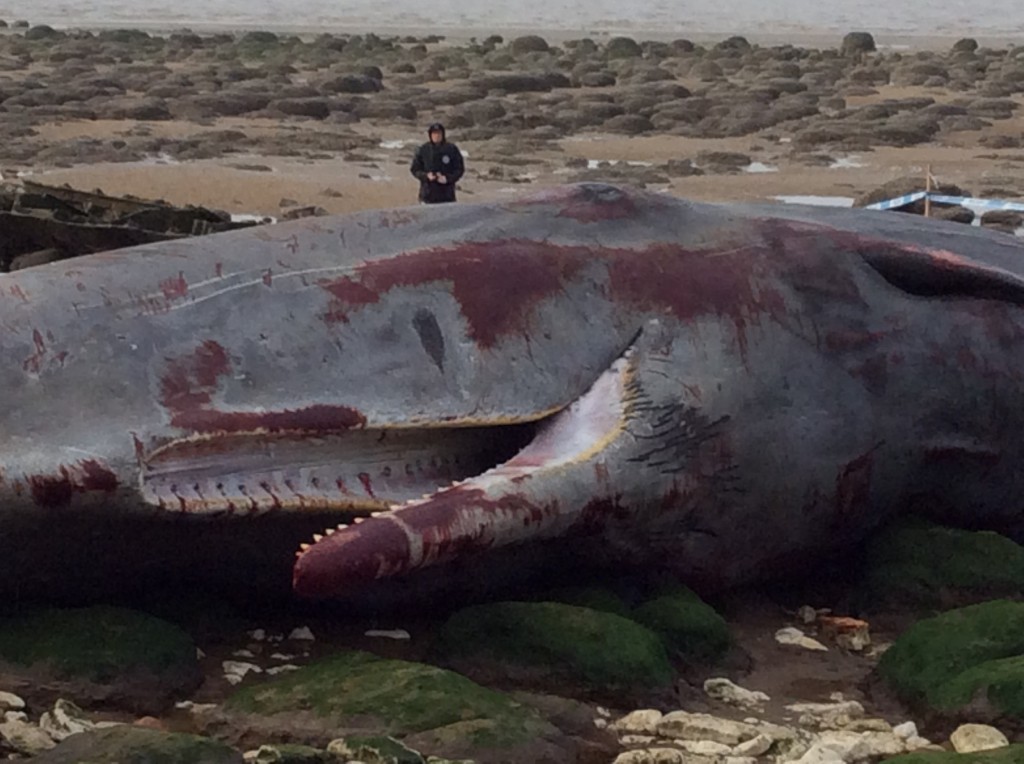
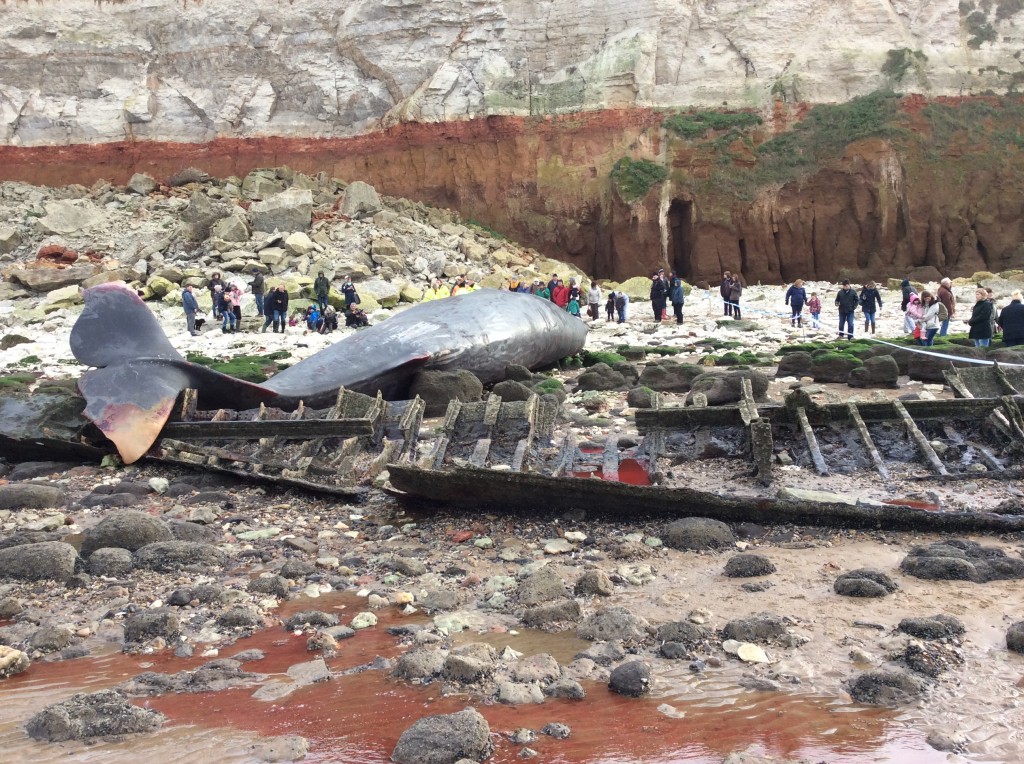
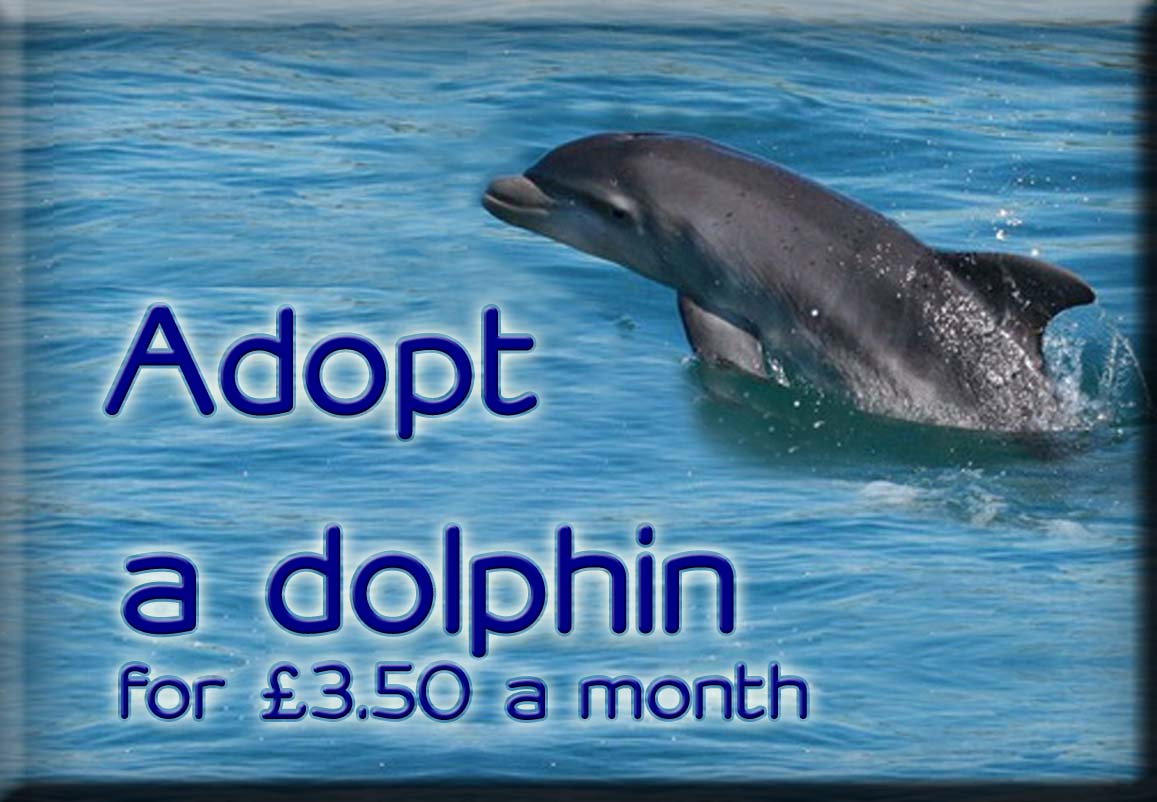
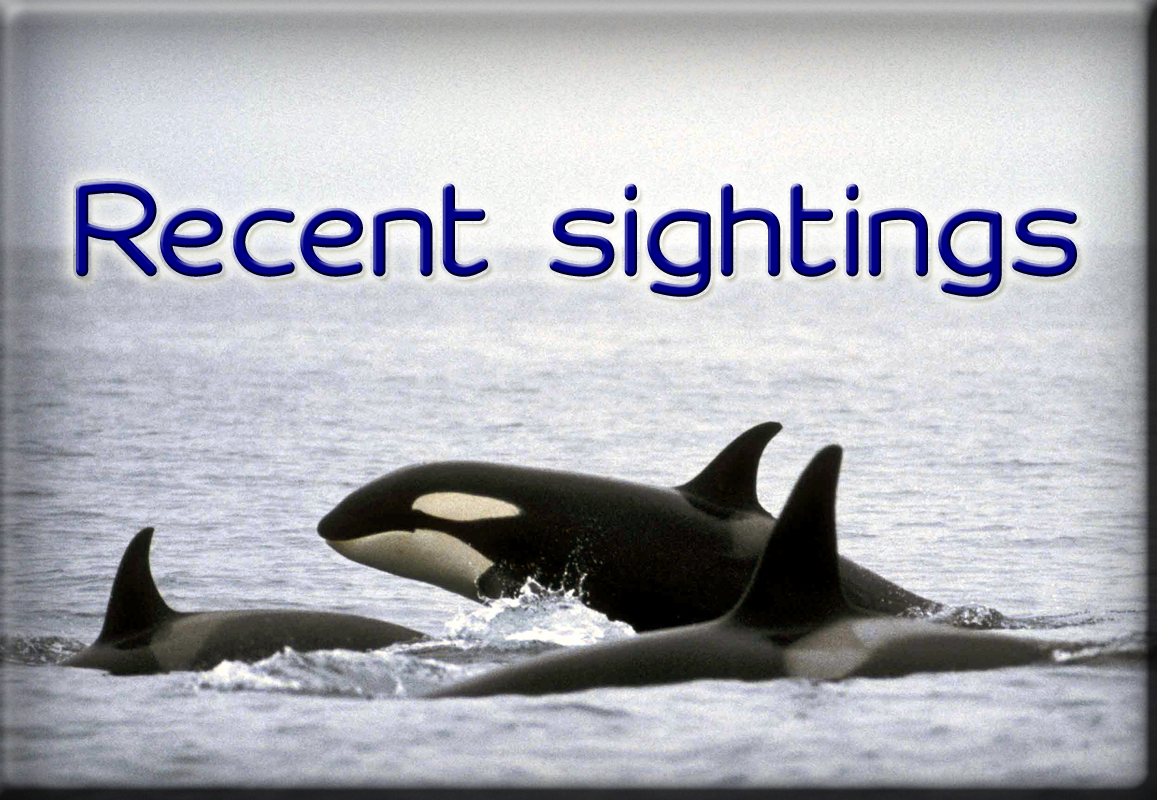






















Pingback: Beached Sperm Whale Deaths Attributed To Squid Hunting
Pingback: Dead whales removed from Skegness beach and taken to landfill sites following five hour operation – Britain weekly
Pingback: Lifeless whales faraway from Skegness seashore and brought to landfill websites following 5 hour operation | DJIOY